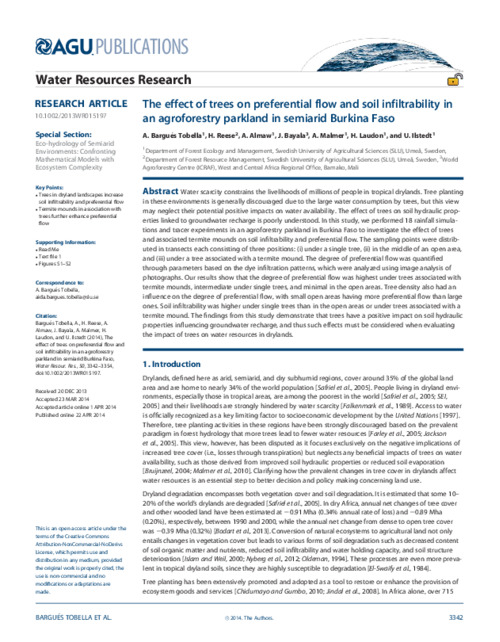The effect of trees on preferential flow and soil infiltrability in an agroforestry parkland in semiarid Burkina Faso
Abstract
Water scarcity constrains the livelihoods of millions of people in tropical drylands. Tree planting
in these environments is generally discouraged due to the large water consumption by trees, but this view
may neglect their potential positive impacts on water availability. The effect of trees on soil hydraulic properties
linked to groundwater recharge is poorly understood. In this study, we performed 18 rainfall simulations
and tracer experiments in an agroforestry parkland in Burkina Faso to investigate the effect of trees
and associated termite mounds on soil infiltrability and preferential flow. The sampling points were distributed
in transects each consisting of three positions: (i) under a single tree, (ii) in the middle of an open area,
and (iii) under a tree associated with a termite mound. The degree of preferential flow was quantified
through parameters based on the dye infiltration patterns, which were analyzed using image analysis of
photographs. Our results show that the degree of preferential flow was highest under trees associated with
termite mounds, intermediate under single trees, and minimal in the open areas. Tree density also had an
influence on the degree of preferential flow, with small open areas having more preferential flow than large
ones. Soil infiltrability was higher under single trees than in the open areas or under trees associated with a
termite mound. The findings from this study demonstrate that trees have a positive impact on soil hydraulic
properties influencing groundwater recharge, and thus such effects must be considered when evaluating
the impact of trees on water resources in drylands

